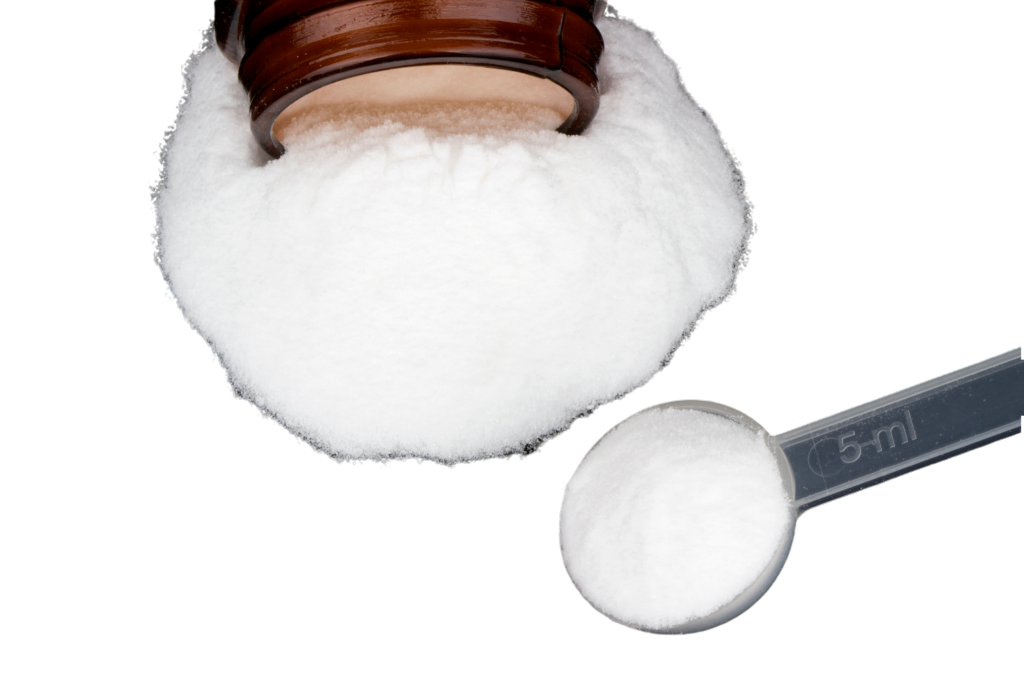Have you ever wondered if creatine can help your brain? You’re not alone! In recent years, there have been a number of studies looking into creatine as a supplement for improving brain health. The results are remarkable—it turns out that creatine can indeed protect and even repair our brains!
Creatine is an organic compound found naturally in the body, but it is also available in supplement form. It has traditionally been used to increase muscle growth and improve performance during exercise, but recent research has shown that it can do much more. Studies have demonstrated that taking higher doses of creatine can help protect the brain from injury and may even help to repair any damage that has occurred.
In this article, we’ll explore the science behind how creatine repairs and protects your brain, as well as provide some recommendations on how much you should take for optimal results. So if you’re looking for ways to improve your cognitive function, read on to learn more about this incredible supplement!
Introduction to Creatine and Brain Health
You’ve heard it before: “Take creatine to increase muscle size and strength.” But, did you know that creatine can also improve brain health? It’s true! Creatine is an amino acid derived from dietary sources (like meats and fish) or made by the body. It helps produce energy and acts as an antioxidant in the brain.
Creatine has been studied extensively for its cognitive benefits. In 2003, a study showed that supplementing with creatine over a six-week period improved cognitive function in healthy young adults. More recently, studies have even suggested that creatine may be able to help repair damage from brain injury.
Research suggests that when combined with omega-3s, creatine can act as a powerful preventive and recovery tool for traumatic brain injury (TBI), helping to reduce inflammation, support neural regeneration, and improve overall brain functioning. Additionally, creatine supplementation has been found to increase cognitive functioning after a concussion—but only if taken early on in the recovery period.
How Does Creatine Repair the Brain?
So how does creatine repair your brain? A study published in 2003 looked at the effects of creatine supplementation on injured brain tissue. Researchers found that taking 20g of creatine per day resulted in increased expression of genes associated with repairing and maintaining brain tissues, including nerve cells.
Another study from 2008 looked at the effects of creatine combined with omega-3 fatty acids on traumatic brain injury. It found that, when combined with omega-3s, creatine was able to improve cognitive performance and reduce inflammation, both critical for recovering from a traumatic brain injury.
Furthermore, a 2011 review article looked at the effects of creatine on concussion recovery. The study concluded that supplementing with 5-20g/day of creatine during recovery could reduce the severity and duration of symptoms associated with mild traumatic brain injuries.
Clearly, while more research needs to be done, these studies show that supplementing with creatine has significant potential to help repair the damage caused by a traumatic brain injury or concussion.
Here’s an informative video I found on creating and brain health:
More Studies That Support the Benefits of Creatine
Recent studies have shown that creatine can protect your brain from traumatic injuries and help to repair it if damaged. One 2003 study in particular found that taking creatine can improve cognitive performance due to increased energy levels in the brain. Additionally, a 2017 study found that supplementing with creatine, along with Omega-3 fatty acids, can reduce damage caused by a concussion or other traumatic brain injury and help the body heal more quickly. Moreover, a 2020 study concluded that taking around 3-5g of creatine per day could reduce short-term memory loss inflicted by concussion or repeated head contact.
These studies demonstrate an undeniable link between taking creatine and enhanced cognitive performance as well as improved protection against traumatic brain injuries. Ultimately, supplementing with creatine could prove invaluable for athletes engaging in contact sports and anyone looking to increase their mental fortitude and resilience.
List of studies referenced in this article:
- Rae et al. (2003): https://www.ncbi.nlm.nih.gov/pmc/articles/PMC1691485/
- McMorris et al. (2007): https://www.tandfonline.com/doi/abs/10.1080/13825580701230926
- Bender et al. (2008): https://www.sciencedirect.com/science/article/pii/S0085253815523835
- Rawson et al. (2015): https://www.sciencedirect.com/science/article/pii/S0531556515001365
- Avgerinos et al. (2018): https://www.sciencedirect.com/science/article/pii/S0531556517315922
Recommended Amounts of Creatine Intake
There is no one-size-fits-all recommended dosage of creatine, as the amount needed to achieve a desired effect may vary from individual to individual.
In general, studies suggest that taking 3–5 grams of creatine per day is sufficient to help maintain normal cognitive function and slow down the rate of cognitive decline as we age. For athletes looking to improve physical performance, a dosage of up to 20 grams per day may provide some benefit depending on body weight and activity level.
The 2003 study referenced in the article found that the group taking the highest dose of creatine (20g/day for 5 days) saw a greater increase in brain phosphocreatine concentrations than those who took lower doses (3g/day). This suggests that higher doses could be more effective in providing short-term protection against concussive impacts.

The protective effects are further amplified when creatine is taken in combination with omega-3 fatty acids, according to a 2020 study on traumatic brain injury. The study concluded that this combination offers neuroprotective benefits thanks to their ability to reduce inflammation and cellular damage caused by brain trauma.
Therefore, it appears that for athletes or those who are at risk for head trauma, an intake of up to 20 grams per day may be beneficial as long as it is used in combination with omega-3 fatty acids.
Potential Side Effects of Taking Creatine
Creatine has been proven to enhance cognition and repair damaged neural tissue in the brain, but it can also have some adverse side effects. Taking too much creatine, or taking it in conjunction with certain medications or soft drinks can cause nausea, cramping, dehydration etc. It is important to speak to your doctor before beginning a creatine supplement regimen to ensure that the dosage is appropriate for you.
Also, those under 18 years of age should avoid taking creatine altogether due to potential negative effects on their still-developing brains.
Additionally, research has suggested that long-term use of creatine supplements may cause kidney and liver damage. The supplement itself has not been linked directly as the cause of damage; however, it can lead to increased body temperature and dehydration which can cause damage over time if not managed properly. It is important to be aware of these potential risks and discuss them with your doctor before starting a new regimen.
Conclusion
In conclusion, it’s clear that creatine can be beneficial for brain health and repair. Taking a creatine supplement, as well as getting adequate amounts from diet, is a great way to provide your brain with the protection and repair it needs. The three studies referenced in the article provide proof of creatine’s beneficial effects on brain health and function. Whether you have been injured or are looking for a way to protect your brain from injury, taking creatine is a great option. So get out there and start taking your creatine, for your brain’s sake!
If you are looking for a creatine supplement, get micronized creatine monohydrate. It’s cheap, mixes well, and works just as well as all the fancy creatine options.
Now, Time to go Pump Some Iron!


